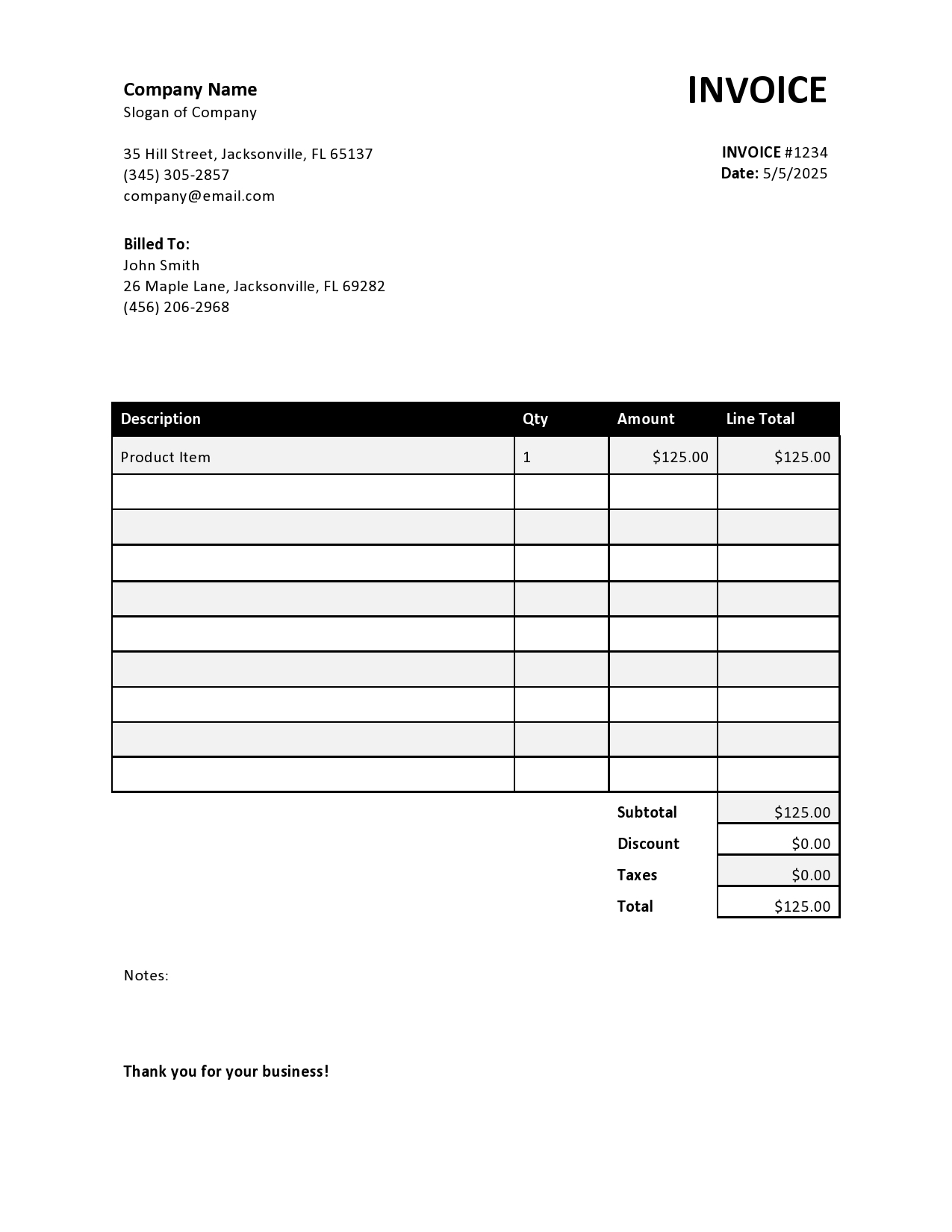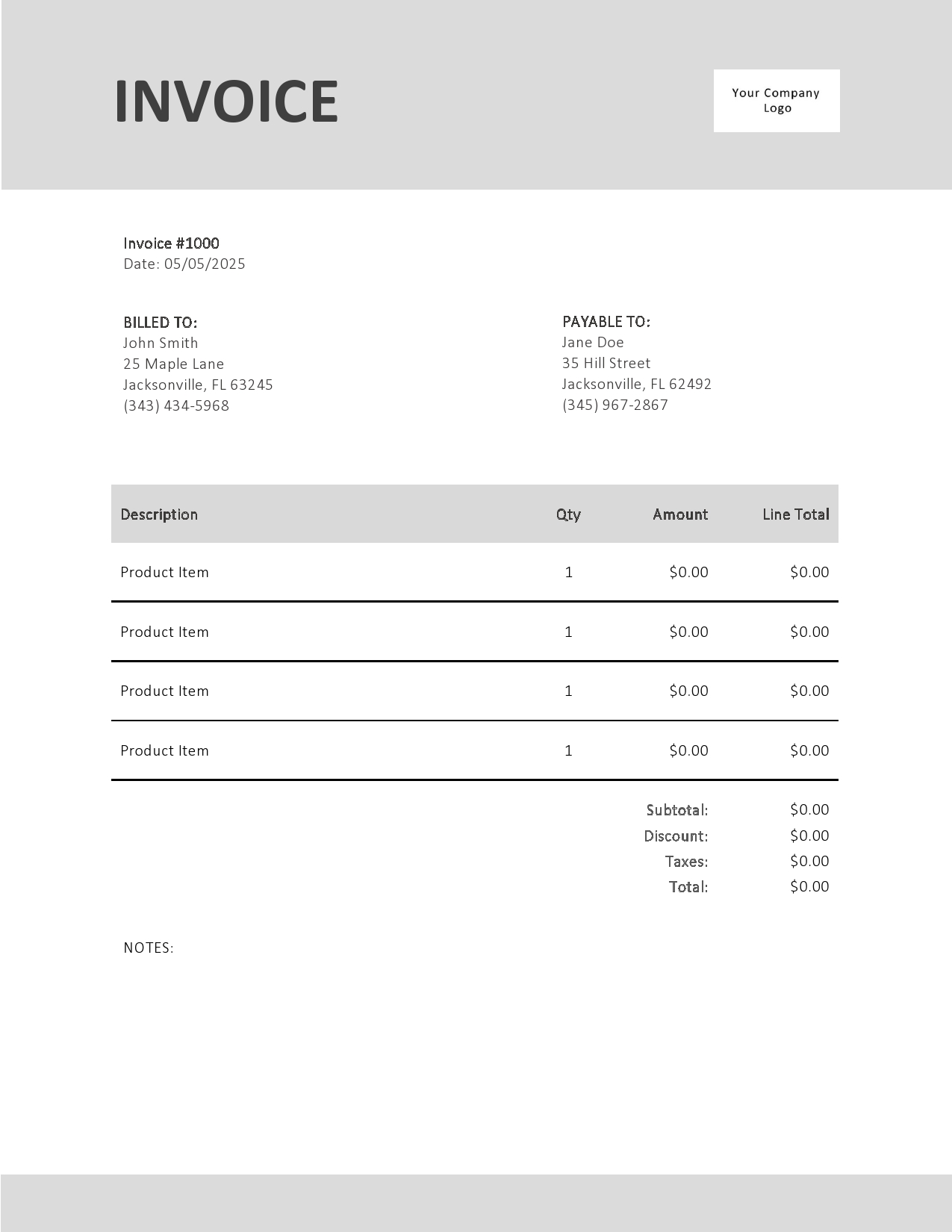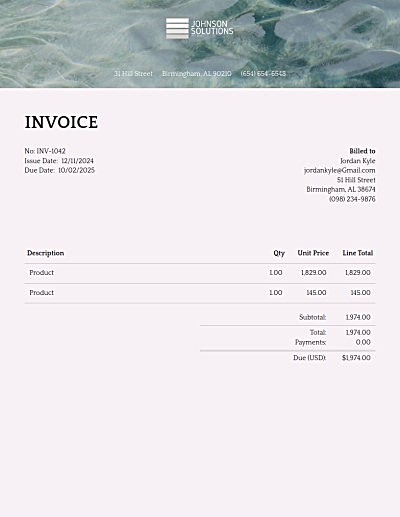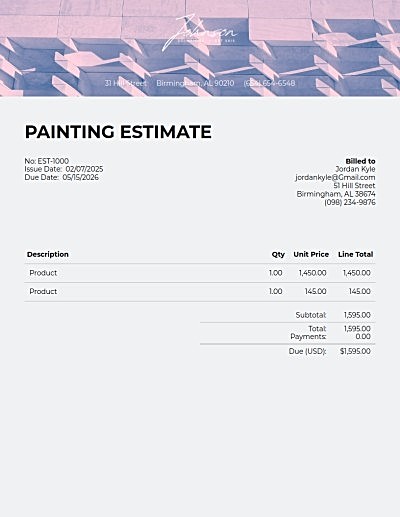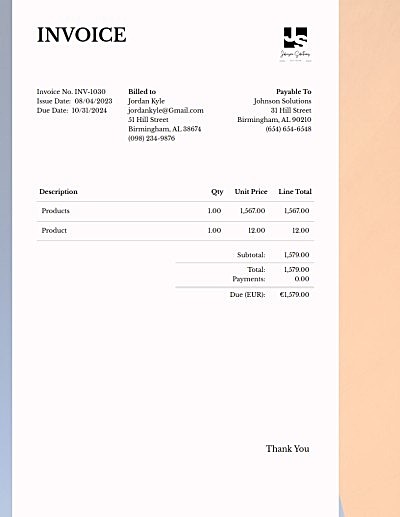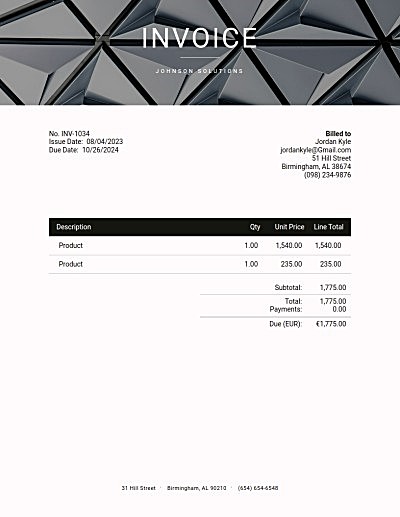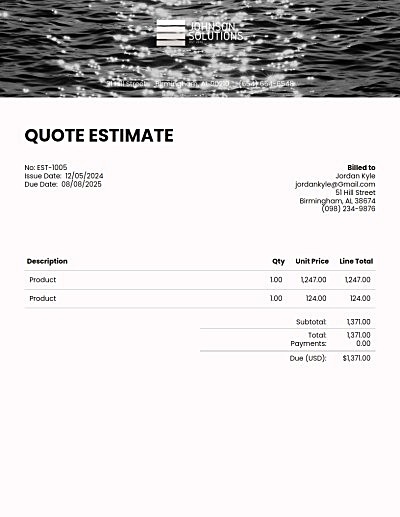Moving Invoice Templates
Need more than a download?
Easy online invoicing: customize, send and get paid.
What Is a Moving Invoice Used For?
A moving invoice is like an official receipt for a big move. It breaks down a company’s moving costs, from labor and transportation to packing materials. Basically, it’s the company’s way of saying, “Hey, here’s everything we did and what it costs.” Once the move is done, they’ll hand it over as a request for payment.
A moving invoice template makes life easier by including all the important details in one place. Clients can see exactly what they’re paying for, which keeps everything clear and builds trust. Many companies offer simple, free invoice templates that make it easy to whip up custom, professional-looking invoices.
Invoice Types for Moving Companies
Moving companies have a few different types of invoices up their sleeves to fit each client’s needs. Picking the right one can smooth out the billing process and help avoid awkward “Wait, what am I paying for?” moments. Here are the most common ones:
- Standard Moving Invoice: This one’s the classic. It lays out all the services, costs, and payment terms so clients know exactly what they’re being charged for.
- Estimate Invoice: Think of this as a heads-up. It gives clients an idea of what the move might cost before the truck even rolls up. Handy for helping them plan their budget and make adjustments ahead of time.
- Final Invoice: Issued after the move, this one shows the actual charges, including any extra fees that popped up along the way. It’s the final tally to make sure everyone is fully informed.
- Recurring Invoice: For clients who need moving services on the regular—like businesses or frequent movers—this one ensures smooth and consistent billing.
Invoice Hacks: What Every Mover Needs to Know
Moving companies know that one size doesn't fit all when it comes to invoices. That's why they use different types to fit their client's needs. Here are some of the most common types of invoices:
- Company Information: Start with the basics—the company name, logo, and contact info (address, phone number, email). Make it easy for clients to get in touch if they have questions.
- Client Details: Include the client’s name, address, and contact info. Personalize it so there’s no confusion about who’s paying the bill.
- Itemized Services: List each service separately—packing, loading, transporting—along with the cost for each. The clearer you are, the fewer questions clients will have.
- Payment Terms: Lay out when payment is due and how clients can pay. Mention any late fees or early payment discounts to encourage timely payments.
- Invoice Number: Every invoice should have a unique number. It keeps things organized and makes tracking a breeze.
- Taxes and Fees: Be upfront about any taxes or extra charges (like fuel fees). No one likes surprise fees, so spell them out to avoid misunderstandings.
- Total Amount Due: Highlight this at the bottom, nice and bold, so clients can easily see what they owe.
Pricing Client Moves: Keep It Fair and Simple
Want to keep clients happy and avoid any billing drama? Fair and transparent rates are the way to go. Here’s how to set them:
- Research Industry Standards: See what other local movers are charging. Most companies ask for $80 to $100 per hour for local moves, depending on factors like the number of movers and the truck size.
- Factor in Additional Costs: Don’t forget to add in expenses like fuel, packing materials, or any extra services like storage. It’s common to tack on a 5%-10% fuel surcharge.
- Offer Transparent Pricing: Break down the costs for clients. The more they understand, the more trust they’ll have (and maybe even hire again!).
- Maintain Clear Communication: Let clients know upfront about rates and any possible extra fees. Good communication builds reps and boosts chances of repeat business.
Invoices Made Easy: A Guide for Movers
Creating invoices doesn’t have to be a headache. With a few tricks, you can make the process fast, easy, and accurate:
- Use Moving Invoice Templates: Templates are your best friend here. They’re pre-formatted, so all you have to do is plug in the details and hit send.
- Leverage Automation Tools: Tools like Invoice Candy can take lots of the work off your plate. You can quickly generate, customize, and track invoices with ease.
- Keep a Checklist: List everything you need to include on the invoice so nothing’s left out. It’ll save you time and help avoid mistakes.
Benefits of Using Invoice Candy for Moving Invoices
Invoice Candy is a lifesaver for moving companies, making invoicing quick and painless. Here’s why it’s a great tool for movers:
- Saves You Time: Pre-designed templates let you input details and generate invoices in no time, so you can focus on the actual move, not the paperwork.
- Easy Itemization: Listing services is super simple, so clients get a breakdown of what they’re paying for.
- Automated Reminders: Keeping track of payments can be tricky. Invoice Candy sends automated reminders to clients, so you don’t have to chase down payments.
- Smooth Integration: It syncs with other software, like accounting tools, making your workflow smoother.
- Secure Storage: You’ll never lose an invoice with Invoice Candy’s secure storage, keeping all your records safe and sound.
- Top-Notch Support: Got a problem? Help is just a click away with reliable customer support.
Frequently Asked Questions
Moving Invoice Templates FAQ
While there aren’t hard-and-fast rules, your invoice should always include essentials like your company info, client details, itemized services, and the total amount due. Keeping things clear and professional helps ensure easy payments.
Yep! Invoices are legal documents that show what services were provided and what’s owed. They protect you and your clients by keeping everything clear and above board.
Take into account things like the type of move (local or long-distance), labor, truck size, and fuel costs. Most local movers charge around $80 to $100 per hour, plus extra fees for supplies or special services.
Send invoices promptly, lay out clear payment terms, and use automated reminders for upcoming due dates. Offering multiple payment options also helps speed things up!
Start with your company and client details, itemize the delivery services with rates, and include the total amount due. Don’t forget an invoice number for tracking.
List your transport services, including distance traveled and any extra charges. Make sure payment terms are clear to avoid any confusion or delays.



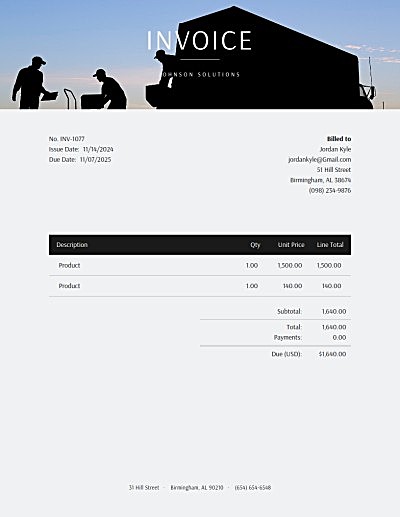
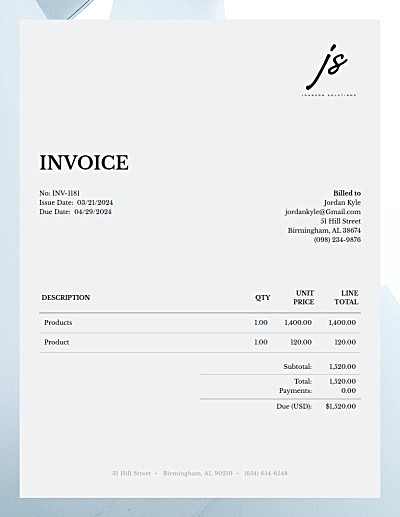
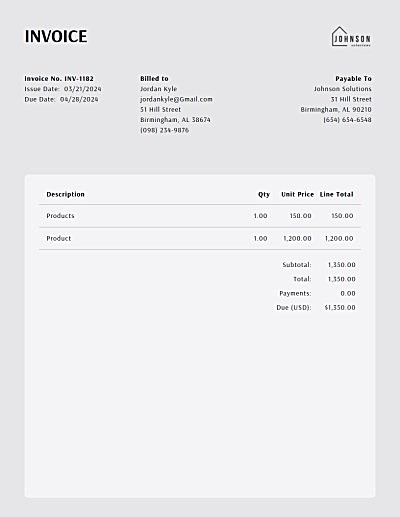
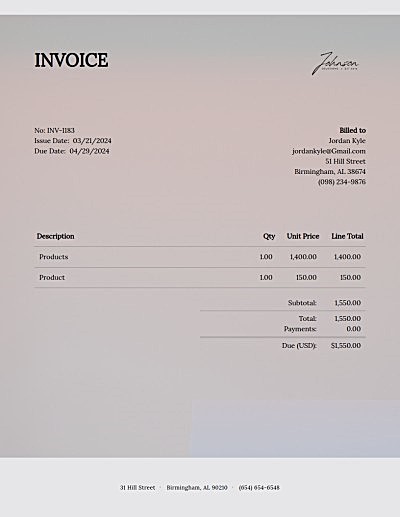

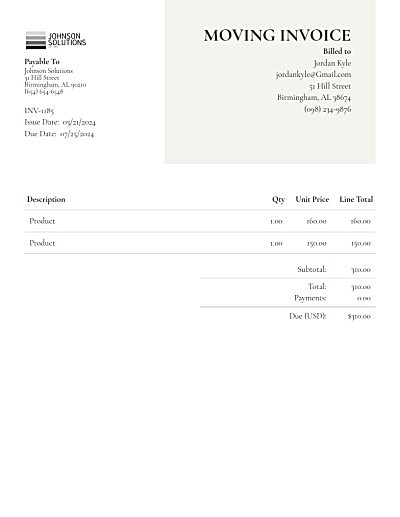

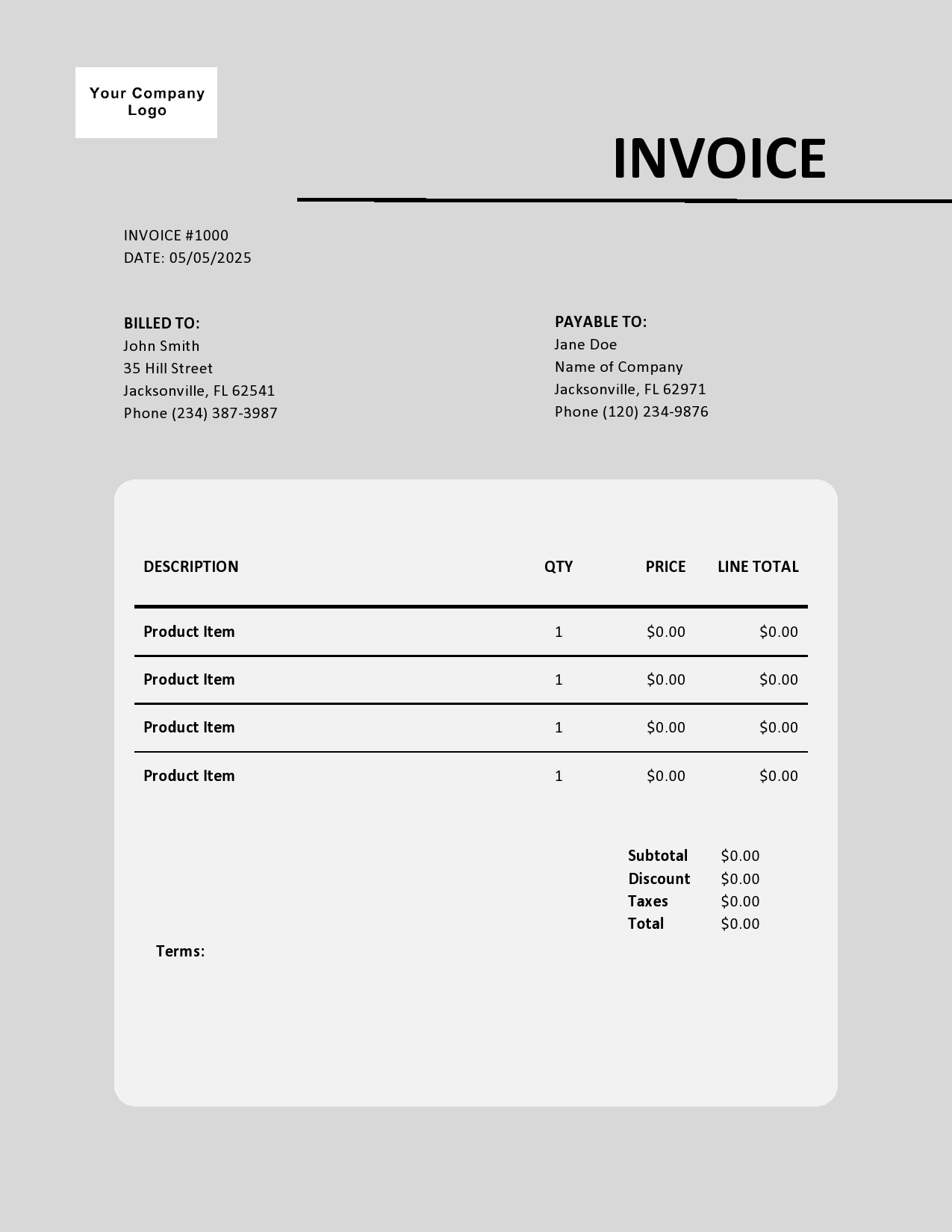
 Excel
Excel
 Word
Word
